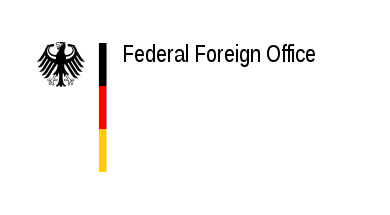The Helmut Schmidt Distinguished Visiting Chair and Postdoctoral Program
The Helmut Schmidt Distinguished Visiting Chair and Postdoctoral Program
Through a regular series of high-level seminars, peer review sessions, and opportunities for direct engagement with senior foreign policy practitioners and leading scholars of statecraft and world order, the DAAD Postdoctoral Fellow(s) will focus their work on the theme, “the roles of the United States and Germany at a crucial moment in world history," and each Fellow is expected to complete a research paper related to the theme during the period of residence. DAAD Postdoctoral Fellows are closely integrated into the Johns Hopkins SAIS academic community and will be affiliated with the Henry A. Kissinger Center for Global Affairs. A division of Johns Hopkins University, SAIS is a global institution that provides interdisciplinary professional education to prepare a diverse student body for internationally related positions of responsibility; to foster research, scholarship and cross-cultural exchange; and to contribute knowledge, expertise, and leadership to the global community.
Applications for postdoctoral fellows were open until January 14, 2025. The instructions remain below for reference and the call for applications is here.
Eligibility
Salary
Application Procedure
- A statement of interest outlining why you are applying and what you hope to get out of this fellowship.
- A 3 to 5-page double-spaced research statement that proposes a research project, including its relevance to the theme “The United States, Europe and World Order.”
- Preferred appointment start and end dates, between July 1, 2025 and June 30, 2026.
- A curriculum vitae.
- Three references with contact information.
The 2025-2026 DAAD Post-Doctoral Fellowship begins between July 1 and October 1, 2025 and concludes on June 30, 2026 with the possibility of renewal for an additional twelve (12) months upon mutual agreement. For further information please visit the program website, the Kissinger Center website, or write to [email protected].
NATO 2030: Towards a New Strategic Concept and Beyond
Members of the 2020-2021 DAAD Postdoctoral Fellow cohort recently collaborated to publish a cutting-edge volume on the future of NATO, titled, NATO 2030: Towards a New Strategic Concept and Beyond, available online December 1st, 2021. Edited by 2020-2021 DAAD Fellows Dr. Jason Blessing, Dr. Katherine Kjellström Elgin, and Dr. Nele Marianne Ewers-Peters, NATO 2030 engages nineteen authors' insights into NATO's relationship with a variety of issues, ranging from strategic partnerships to emerging technologies. This volume contributes to critical conversations on NATO’s future vitality by examining the Alliance’s most salient issues and by offering recommendations to ensure its effectiveness moving forward.
Written by a diverse, multigenerational group of policymakers and academics from across Europe and the United States, this book provides new insights about NATO’s changing threat landscape, its shifting internal dynamics, and the evolution of warfare. The volume’s authors tackle a wide range of issues, including the challenges of Russia and China, democratic backsliding, burden sharing, the extension of warfare to space and cyberspace, partnerships, and public opinion. With rigorous assessments of NATO’s challenges and opportunities, each chapter provides concrete recommendations for the Alliance to chart a path for the future. As such, this book is an indispensable resource for NATO’s strategic planners and security and defense experts more broadly. Learn more about this work here.
Paradigm Lost? The European Union and the Challenges of a New World
"Is a new era dawning for the European Union? Is the Union’s vision of “ever closer union and a gradually expanding space of free movement of goods, services, people and capital still viable in a continent wracked by such disruptive influences as the COVID-19 pandemic, climate change, Brexit, new security challenges, digital transformations, more intense international competition, and internal disputes over issues ranging from the rule of law and common debt financing to the future of the euro? What role can and should the European Union play in this new world? What rules and values should guide it?"
Edited by Daniel S. Hamilton, Gregor Kirchhof, and Andreas Rödder, Paradigm Lost? The European Union and the Challenges of a New World explores these questions, drawing on the expert insights of its international and interdisciplinary authors. Supported by the Henry A. Kissinger Center for Global Affairs and the Foreign Policy Institute at Johns Hopkins University's School of Advanced International Studies, this volume makes a unique contribution to the study of the European Union and its future.
Our Current Helmut Schmidt Distinguished Visiting Professor
-
Marina Henke, Professor of International Relations at the Hertie School in Berlin, Germany
Our Current Postdoctoral Fellows
-
Iren Marinova, PhD, Colorado State University
-
Sara Daub, PhD, Hertie School
Our Past Helmut Schmidt Distinguished Visiting Professors
-
Andreas Rödder, Professor of Modern and Contemporary History, Johannes Gutenberg University of Mainz, Germany
-
Kristina Spohr, Professor of International History, London School of Economics and Political Science, United Kingdom
Our Past Cohorts
The inaugural class of Postdoctoral Fellows (2018-2019 academic year):
• Wencke Meteling, PhD, University of Tübingen, Germany
The second cohort of Postdoctoral Fellows (2019-2020 academic year):
• Tizoc Chavez, PhD in History, Vanderbilt University, USA
• Iulia-Sabina Joja, PhD in Strategic Studies, National University of Political Studies and Public Administration, Bucharest, Romania
• David Kleimann, PhD in European, International, and Comparative Laws at the European University Institute (EUI), Florence, Italy
• Maria Snegovaya, PhD in Political Science from Columbia University, USA
• Frank Stengel, PhD in Political Science, University of Bremen, Germany
The third cohort of Postdoctoral Fellows (2020-2021 academic year):
The fourth cohort of Postdoctoral Fellows (2021-2022 academic year):
• Jonas J. Driedger, PhD, European University Institute, Italy
• Shushanik Minasyan, PhD in Political Science, University of Bonn, Germany
The fifth cohort of Postdoctoral Fellows (2023-2024 academic year):
• Juliane Hornung, PhD, University of Munich, Germany
Our Funders
